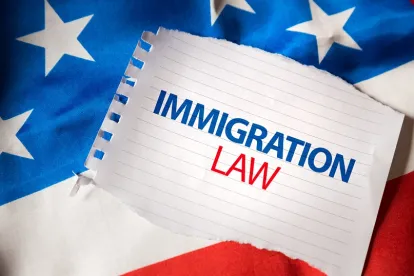Now is the time for employers to assess their FY2019 H-1B needs and start preparing their petitions for submission on April 2.
On Monday, April 2 2018, the US Citizenship and Immigration Services (USCIS) will begin accepting cap-subject H-1B petitions for fiscal year 2019, with an employment start date of October 1, 2018. We recommend that employers send all H-1B petitions subject to the FY2019 cap to USCIS for delivery on April 2. Any cap-subject H-1B petitions that USCIS receives before April 2 will be rejected.
USCIS has a quota of 65,000 cap-subject H-1B visas each fiscal year. (By law, 6,800 of those visas are allocated as H-1B1 visas to nationals of Chile and Singapore.) A separate allotment of 20,000 H-1B visas is available to foreign nationals who hold a master's or other advanced degree from a US institution of higher education. As indicated in the below table, demand for H-1B visas has fluctuated in past years. A few years ago, it took months to reach the cap; recently, in 2016 and 2017, the cap was reached within the first few days of filing. Although it is not possible to predict with complete accuracy what the demand for H-1B visas will be this year, an improving economy and an increasing demand for qualified workers, especially in the financial services and information technology industries, strongly suggest that demand will be high and that the cap will be reached again very quickly, possibly within a week after April 1. Employers should therefore submit their cap-subject H-1B petitions as early as possible.
| Year | Date H-1B Cap Reached |
| 2014 (FY2015) | April 7, 2014 |
| 2015 (FY2016) | April 7, 2015 |
| 2016 (FY2017) | April 7, 2016 |
| 2017 (FY2018) | April 7, 2017 |
Only petitions filed on behalf of foreign nationals who have not previously been counted against the H-1B cap in the last six years are subject to this year's H-1B cap. H-1B petitions for foreign nationals employed by institutions of higher education, nonprofit research organizations, or at governmental research organizations are not subject to the cap.
How This Affects You
Employers should review the immigration status of their current and potential foreign national employees and identify any individuals for whom H-1B status might be beneficial. These individuals include the following:
- Recent college and university graduates employed in F-1 optional training status
- Candidates abroad who are subject to the annual H-1B cap
- Candidates in another nonimmigrant status (e.g., L-1B) who are approaching the maximum limits of their status and would benefit from a change of status to H-1B
- Candidates currently employed pursuant to H-4 employment authorization document (EAD) who wish to become independent of the spouse’s H-1B status or who are concerned about continuity of the H-4 EAD program
- Candidates in another nonimmigrant status who work for a different employer and would require an H-1B visa to change jobs
- Candidates in TN, E, or H-1B1 status for whom an employer is considering pursuing permanent residence
Note that if the limit on H-1B visa numbers is reached on any one of the first five business days of the cap season, all petitions received by USCIS between Monday, April 2, and the close of business on Friday, April 6, will still be accepted, but their selection for adjudication will be subject to USCIS conducting a lottery among them. A lottery has been held for the past three years, and it is almost certain that a lottery will be held again this year.
It should be noted that the degree of scrutiny applied to H-1B petitions in 2017 was far higher than in past years, with the result that the issuance of Requests for Evidence (RFEs) for, and denials of, such petitions increased dramatically. This trend is likely to continue this year, and petitioners should be prepared to receive a significant number of RFEs and denials for their cap-subject H-1B petitions. The following are areas of concern for the USCIS, and may result in the issuance of an RFE or a denial: (1) the use of a Level I wage in the supporting Labor Condition Application (LCA); (2) the use of “Computer Occupations, All Other” Standard Occupational Classification (SOC) occupation title in the supporting LCA; (3) proposed employment of the beneficiary as a computer systems analyst or market research analyst; (4) proposed employment in any other position that does not appear to be a specialty occupation or where the beneficiary’s education does not appear to be connected to the position to be held.




 />i
/>i

